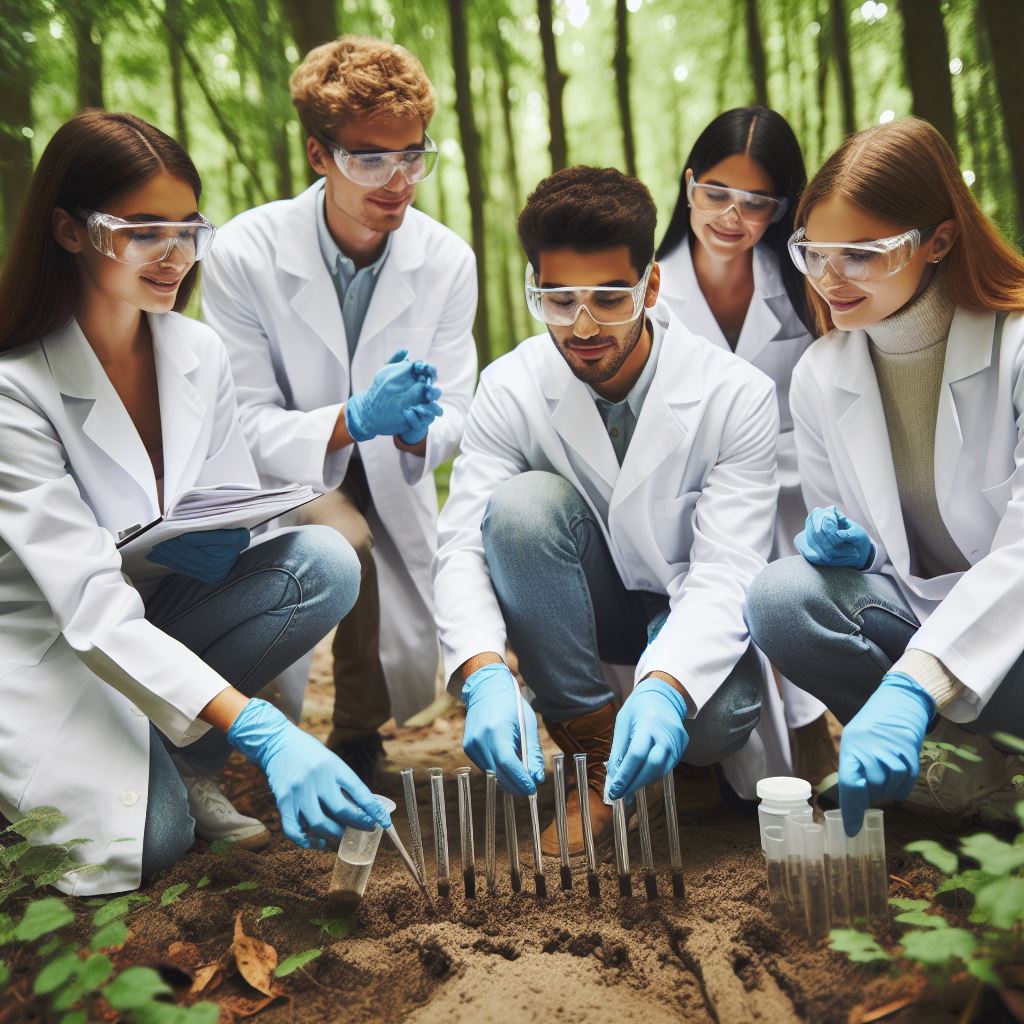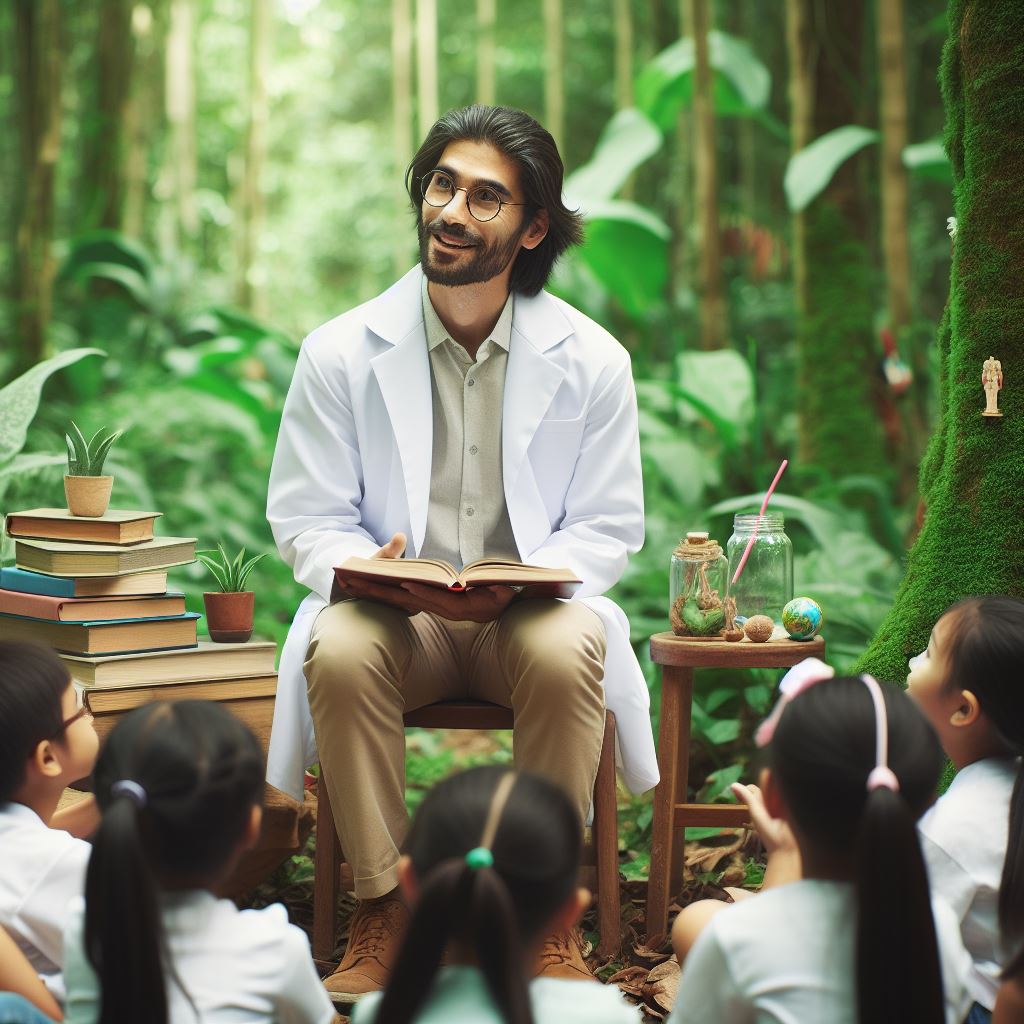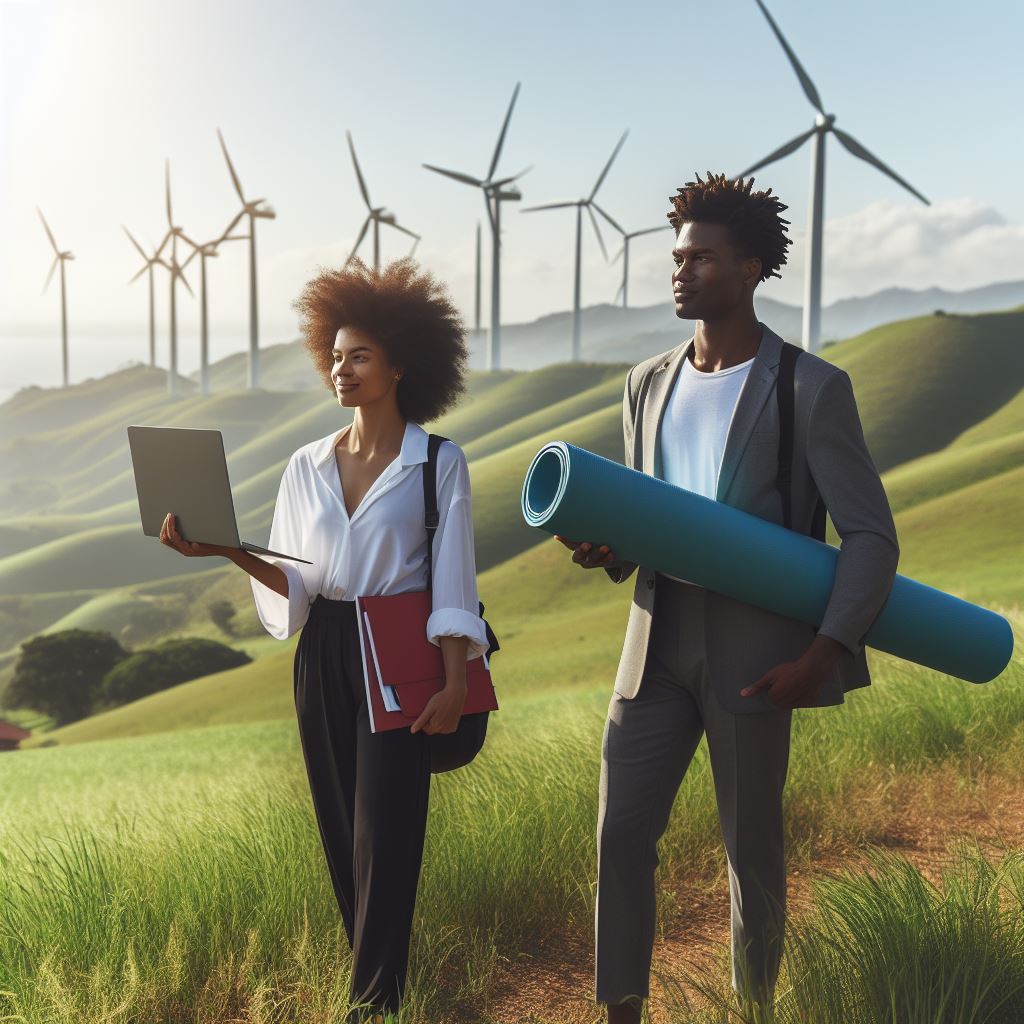Introduction
Balancing economy and ecology is the complex challenge of harmonizing economic development with environmental sustainability.
It involves navigating the interdependence between human prosperity and the health of the planet.
Striking a balance requires policies, practices, and innovations that foster economic growth without compromising the integrity of ecosystems.
This delicate equilibrium seeks to ensure that advancements in industry, technology, and infrastructure consider environmental impacts, resource conservation, and biodiversity preservation.
Achieving this balance is essential for a resilient and sustainable future, acknowledging the intrinsic link between a thriving economy and a healthy environment.
A scientist’s perspective is necessary to understand the complex relationship between economy and ecology.
Scientists use systematic methods to observe, analyze, and interpret phenomena, contributing to a deeper understanding of the world.
Their commitment to empiricism fosters reliable information, critical for informed policymaking, technological advancements, and societal progress.
The scientific perspective encourages skepticism, encouraging constant questioning and refinement of ideas.
It prioritizes evidence over assumptions, promoting intellectual integrity.
This approach is fundamental for addressing complex challenges, from climate change to medical breakthroughs, ensuring that solutions are grounded in rigorous research and fostering a culture of continuous learning and improvement.
The purpose of this blog post is to explore the role of scientists in finding sustainable solutions.
Understanding the Economy and Ecology Relationship
Explaining the concept of economy and its focus on financial growth and stability
- Economy refers to the system of production, consumption, and distribution of goods and services in a country.
- It focuses on achieving financial growth and stability by maximizing resources and generating wealth.
- The economy encompasses activities such as manufacturing, trade, investment, and employment.
- Government policies and market forces play vital roles in shaping the economy.
- Financial indicators like GDP, inflation rate, and employment rate are used to gauge economic performance.
Defining ecology and highlight its focus on the environment and natural resources
- Ecology is the scientific study of interactions between organisms and their environment.
- It focuses on understanding the relationships among living organisms, their habitats, and natural resources.
- Ecology aims to promote the sustainable use and conservation of biodiversity and ecosystems.
- It examines concepts such as food chains, energy flow, and the impact of human activities on the environment.
- Ecologists study various ecosystems, including forests, oceans, grasslands, and urban areas.
Discussion of the interdependence between the economy and ecology
- The economy and ecology are intricately linked and depend on each other for success and sustainability.
- The economy relies on ecosystem services, such as clean air, water, and fertile soil, provided by nature.
- Industries extract raw materials from the environment and produce goods and services for economic growth.
- However, unchecked economic activities can lead to environmental degradation and loss of natural resources.
- Ecology emphasizes the importance of sustainability, which is essential for the long-term viability of the economy.
- Environmental regulations and conservation efforts are necessary to protect ecosystems and maintain a healthy environment.
- A healthy environment, in turn, contributes to a stable economy by ensuring the availability of resources for future generations.
- Businesses are recognizing the need to adopt eco-friendly practices and incorporate environmental considerations into their operations.
- Investing in renewable energy sources and promoting circular economies can lead to economic growth while minimizing ecological footprint.
- The economy and ecology relationship requires a balance between financial prosperity and environmental stewardship.
Essentially, the economy and ecology are intertwined, and their relationship requires careful management.
While the economy focuses on financial growth and stability, ecology emphasizes the conservation of natural resources and the environment.
Achieving a balance between the two is crucial for sustainable development and the well-being of present and future generations.
Governments, businesses, and individuals must work together to foster an economy that respects and protects the environment to ensure a prosperous and resilient future.
The Scientist’s Perspective on Balancing Economy and Ecology
Present the scientist’s role in understanding environmental impact assessments
One of the key roles of a scientist is to understand and conduct environmental impact assessments.
Scientists analyze the potential effects of human activities on the environment, such as pollution, deforestation, and climate change.
They gather data, conduct experiments, and use models to assess the impact of these activities on various ecosystems and species.
By understanding the environmental impact of economic activities, scientists can provide valuable insights to policymakers and businesses.
Discussion of the scientist’s involvement in sustainable development practices
Scientists play a crucial role in promoting and implementing sustainable development practices.
They develop and evaluate strategies that minimize negative environmental impacts while promoting economic growth.
Through research and innovation, scientists contribute to the development of sustainable technologies and practices.
For example, they study renewable energy sources, such as solar and wind power, and explore ways to reduce waste and promote recycling.
By advocating for sustainable development, scientists help create a balance between economic growth and environmental protection.
Unlock Your Career Potential
Visualize a clear path to success with our tailored Career Consulting service. Personalized insights in just 1-3 days.
Get StartedHighlighting the scientist’s contribution to environmental policy-making
Scientists have a significant influence on environmental policy-making due to their expertise and research findings.
They provide policymakers with scientific evidence on the consequences of certain policies and actions.
By presenting data and analysis, scientists can help shape environmental regulations and laws that protect the ecosystem.
Furthermore, scientists contribute to the development of international agreements and protocols, such as the Paris Agreement.
Their research and input ensure that environmental policies are based on scientific knowledge and strive for sustainability.
In fact, the scientist’s role in balancing economy and ecology is vital for a sustainable future.
By understanding environmental impact assessments, scientists can provide valuable insights to policymakers and businesses.
Their involvement in sustainable development practices helps promote a balance between economic growth and environmental protection.
Furthermore, scientists contribute to environmental policymaking by providing scientific evidence and advocating for sustainable policies.
Overall, their expertise and research findings play a crucial role in creating a harmonious relationship between the economy and ecology.
Read: Canadian Wildlife Biologists: Roles and Duties
Challenges in Balancing Economy and Ecology
Conflicting interests between economic growth and environmental conservation
In the pursuit of economic growth, conflicts often arise with the fundamental goals of environmental conservation.
Industries may prioritize profits over sustainable practices, leading to the degradation of natural resources and ecosystems.
The exploitation of natural resources for economic gain can result in habitat destruction, species extinction, and pollution.
Conflicting interests further intensify as economic growth sometimes requires compromises in environmental regulations and protections.
With limited resources, communities and policymakers face the challenge of finding a balance between economic prosperity and ecological sustainability.
The pressure to prioritize short-term economic gains over long-term ecological sustainability
In the face of pressing economic needs, there is often an inherent pressure to prioritize short-term gains over long-term ecological sustainability.
Governments and businesses may focus on immediate economic benefits, neglecting the long-term consequences and potential environmental risks.
Investments in sustainable practices or technologies may be overlooked or delayed due to a perceived lack of immediate economic returns.
This short-term mindset can lead to irreversible damages to ecosystems and the depletion of natural resources in the long run.
Efforts to balance the economy and ecology require a shift towards a more long-term perspective to ensure the sustainability of both.
Difficulties in measuring and valuing ecosystem services
One of the major challenges in balancing the economy and ecology lies in measuring and valuing ecosystem services.
Ecosystem services, such as clean air, water filtration, and carbon sequestration, provide vital benefits for human well-being.
However, these services, which are often taken for granted, are challenging to quantify in monetary terms.
Traditional economic measures, such as GDP, fail to account for the value provided by these ecosystem services.
As a result, decision-makers may prioritize economic activities without fully considering the long-term consequences on ecosystem health and human welfare.
Efforts are underway to develop frameworks that include the valuation of ecosystem services to better inform decision-making processes.
Overall, finding a balance between the economy and ecology is a complex task.
It requires addressing conflicting interests, resisting short-term pressures, and accurately valuing ecosystem services.
Only with a comprehensive understanding of the interdependence of economic growth and environmental conservation can we pave the way for a sustainable future.
Read: Top Environmental Research Institutes in Canada

Successful Examples of Balancing Economy and Ecology
Case studies of countries or regions that have achieved a balance between economic growth and environmental sustainability
- Germany: Transitioning to renewable energy sources to reduce carbon emissions and promote economic growth.
- Costa Rica: Focusing on sustainable tourism by preserving natural resources and supporting local communities.
- Scandinavian countries: Implementing strict environmental regulations while maintaining economic prosperity.
- Bhutan: Prioritizing Gross National Happiness over GDP, leading to sustainable economic growth.
- Australia: Investing in renewable energy and implementing conservation measures to protect the Great Barrier Reef.
Discussion of policies and strategies implemented in these examples
- In Germany, the government introduced generous feed-in tariffs for renewable energy producers, encouraging investments in clean energy.
- Costa Rica implemented strict regulations on land use, protected wildlife habitats, and promoted sustainable agriculture practices.
- Scandinavian countries established comprehensive environmental laws, enforced carbon pricing, and heavily invested in education and research.
- Bhutan emphasized sustainable development, biodiversity conservation, and community-based initiatives.
- Australia implemented marine park zoning, pollution reduction programs, and incentives for renewable energy development.
Highlighting the positive outcomes and benefits of balancing economy and ecology
- Improved air and water quality, leading to better public health and quality of life.
- Preservation of biodiversity and ecosystems, ensuring long-term sustainability of resources.
- Development and growth of sustainable industries, creating green jobs and increasing economic opportunities.
- Enhanced resilience to climate change impacts, reducing vulnerability and increasing adaptive capacity.
- Positive international reputation and increased tourism appeal due to commitment to environmental sustainability.
Overall, these successful examples demonstrate that balancing economy and ecology is not only feasible but also beneficial for society, the environment, and the economy.
By implementing effective policies and strategies, countries and regions can achieve economic growth while safeguarding the environment for future generations.
Read: Major Challenges Faced by Environmental Scientists
The Importance of Science and Collaboration
Emphasizing the need for scientific research and evidence in decision-making
Scientific research and evidence play a crucial role in making informed decisions about balancing economy and ecology.
It provides the necessary data and knowledge to understand the complex interactions between the two.
Without scientific research, decision-makers would rely on subjective opinions, personal biases, or incomplete information.
This could lead to misguided policies or practices that harm both the economy and the environment.
By incorporating scientific research and evidence into decision-making processes, we ensure that the actions taken are based on facts, data, and a comprehensive understanding of the issue at hand.
The importance of interdisciplinary collaborations between scientists, economists, policymakers, and industry leaders
Addressing the challenges of balancing economy and ecology requires collaboration among experts from various fields.
Scientists, economists, policymakers, and industry leaders must work together to find sustainable solutions.
Interdisciplinary collaborations bring different perspectives, expertise, and ideas to the table, fostering innovative and effective approaches.
These collaborations help identify potential trade-offs and synergies between economic development and environmental conservation.
Scientists can provide valuable insights into the ecological impact of economic activities, while economists can quantify the costs and benefits associated with different policies.
Policymakers can then use this information to make well-informed decisions, and industry leaders can contribute their practical knowledge and resources to implement sustainable practices.
Highlighting the potential of technology and innovation in achieving a sustainable balance
Technology and innovation have the potential to revolutionize the way we balance economy and ecology.
They offer solutions that can mitigate environmental impact while promoting economic growth.
Advancements like renewable energy sources, green technologies, and sustainable agricultural practices enable us to reduce greenhouse gas emissions, conserve natural resources, and minimize pollution.
These innovations provide viable alternatives to resource-intensive and environmentally harmful practices.
Furthermore, technology allows for improved monitoring, data collection, and analysis, which enhances our understanding of ecological dynamics and helps us make better decisions.
It empowers scientists, policymakers, and industry leaders to implement evidence-based strategies for a sustainable future.
In general, science plays a crucial role in decision-making processes related to balancing economy and ecology.
Collaborations between scientists, economists, policymakers, and industry leaders are vital for finding innovative and sustainable solutions.
Technology and innovation offer immense potential to achieve a sustainable balance and secure a prosperous future for both the economy and the environment.
By embracing science, collaboration, and innovation, we can navigate the complex challenges ahead and create a harmonious coexistence between economy and ecology.
Read: Environmental Science: Career Paths and Prospects
Conclusion
By considering both the economic and ecological impacts of our actions, we can ensure a sustainable future for generations to come.
It is our collective responsibility to make informed decisions and prioritize eco-friendly practices.
Let us strive to find innovative solutions that promote economic growth without compromising the health of our planet.
By investing in renewable energy, reducing waste, and preserving natural resources, we can achieve a harmonious balance between economy and ecology.
It is essential for individuals, businesses, and governments to make conscious efforts towards sustainability.
Whether it is through supporting green initiatives, advocating for environmental policies, or making simple lifestyle changes, everyone can contribute towards a more balanced future.
By embracing the scientist’s perspective, we can create a world where economic progress and environmental preservation coexist.
Let us act now and pave the way towards a greener, healthier, and more prosperous planet for future generations.




